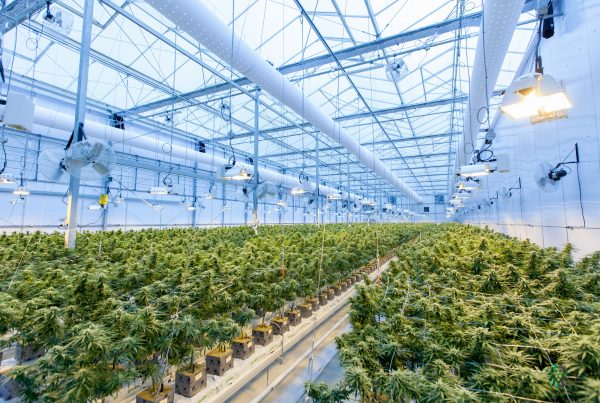
It would seem on the surface of it, al-Jaber naysayers have been proved wrong. Kicking things off, a landmark agreement on the Loss and Damage Fund was achieved on the first day of the summit. In previous years, wealthier nations have been reluctant to commit funds to the initiative and an agreement failed last year. The deal helps the world’s poorest and most vulnerable countries pay for the irreversible impacts of climate disaster, with the UAE and Germany pledging $100 million (£79m). There was also great emphasis on the role of the private sector and the power of climate finance, highlighting how policy guidance, incentives, regulations and enabling conditions created by governments were essential to reaching the scale of investments required to achieving climate goals.
The central pillar of COP28 activity was the Global Stocktake. This year marks the conclusion of the first two-year review process, which going forward will take place at five-year intervals. The Stocktake was a key commitment of the 2015 Summit in Paris, its purpose; to review, assess and report on global progress towards achieving the central ambitions of the Paris Agreement. The Stocktake this year recognised that global greenhouse gas emissions need to be cut 43% by 2030, compared to 2019 levels, to limit global warming to 1.5°C, but noted parties were off track when it comes to meeting this commitment. As such, it recognised the need for deep, rapid and sustained reductions in greenhouse gas emissions in line with the 1.5 °C ambition, calling for parties to accelerate efforts towards the phase-down of coal power, transition away from fossil fuels in energy systems, and triple renewable energy capacity globally by 2030, whilst recognising the value of transitional fuels in facilitating energy security.
Bringing all this together, and after tense talks at the climax of the summit, countries reached a deal around fossil fuels. The difficulty in getting there cannot be understated. Firstly, this is the first time a COP agreement has referenced the burning of fossil fuels as the root cause of climate change. Additionally, although Saudi Arabia took most of the blame, it was in fact many middle-income developing countries like Nigeria and Colombia who opposed the idea of a phase out of fossil fuels, out of fear of extra costs.
The “UAE Consensus,” outlines a climate agenda geared towards maintaining the feasibility of limiting global warming to 1.5°C. It urges Parties to transition away from fossil fuels (specifically for energy systems) to reach global net-zero emissions by 2050, calls for the submission of economy-wide Nationally Determined Contributions (NDCs), establishes a fresh target to triple renewables and double energy efficiency by 2030, and encourages a revamped framework for climate finance. There has however been criticism of the agreement and the optimism surrounding it, with small climate-vulnerable island states, who were excluded from the discussions, questioning its efficacy, and suggesting the text contains a “litany of loopholes” and is “unambitious”.
Representatives of the UK also faced criticism. Prime Minister Rishi Sunak was accused of only attending for performative purposes, as he left COP28 after his speech, and Graham Stuart, Minister of State for Energy Security and Net Zero journeyed back to London for the House of Commons Rwanda vote, before returning to Dubai for the publication of the “UAE Consensus”. In a year the UK government have rowed back on many of their climate pledges, an over 10,000 mile round trip in 24 hours does nothing to demonstrate a commitment to the environment. Despite this, in his speech, Sunak restated the UK’s commitment to the transition, the Paris Agreement, and the ambition of keeping 1.5 alive.
Keir Starmer got the memo that COP28 was the place to be seen. COP28 attendance was almost double the attendance of COP26, with the world’s biggest companies attending en masse, and the Times naming it ‘the new Davos’. Starmer used COP28 as an opportunity to talk about Labour’s commitment to the climate; spending three days at the summit accompanied by shadow foreign secretary, David Lammy and shadow energy secretary Ed Miliband. As with his attendance at Davos in January this year, Starmer seems intent on making Labour’s mark on a global stage. Ed Miliband emphasised that Labour wanted to mobilise private finance to back action on green goals, and harness financial services to lead on the green finance agenda.
As we move towards a general election in the UK, all eyes will be on manifesto pledges to see how each party aims to bring the UK’s COP28 commitments to reality. Countries will reconvene at COP29, next November. Amidst a raft of elections globally, the stance leaders will take on the global stage will be telling. Interestingly, host Azerbaijan is another petrostate, therefore heavily dependent on the extraction and export of fossil fuels, but the UAE has shown that this isn’t the barrier that many expected it to be. Azerbaijan could also flip the narrative and make positive representations on the world stage. With the date for the UK general election still unclear, it remains to be seen which politician will be making these representations on behalf of the UK government in 2024.
Next steps
- Following Azerbaijan, Brazil will host COP30 in 2025.
- At COP29, governments must establish a new climate finance goal, reflecting the scale and urgency of the climate challenge.
- At COP30, governments must come prepared with new nationally determined contributions that are economy-wide, cover all greenhouse gases and are fully aligned with the 1.5°C temperature limit.
COP28 Policy Summary
H/Advisors Cicero December 2023
Statements
Speech by the Prime Minister, Rishi Sunak
- In his COP28 speech, Sunak acknowledged that progress has been made at the point of the first Global Stocktake but stressed the need for the agreement of new commitments including by major emitters who he said must dramatically accelerate the delivery of what they have already promised.
- He nonetheless reiterated that the UK would continue to pursue a pragmatic approach so as not to place the pressures of the transition on working people.
- On the global transition, Sunak announced an additional £1.6 billion of international climate finance (ICF), as set out in full below.
- On green finance, Sunak reiterated the UK’s leadership in this field and confirmed the Government would continue to seek to unlock private capital to support the transition, as set out below.
Private Finance
- The Government has confirmed the formal launch of the CIF Capital Markets Mechanism in 2024 which it suggests will generate up to $750 million/year in new climate finance – $7.5 billion over the next decade – which could in turn attract over $50b in co-financing for climate projects in emerging and developing economies.
- The Government has announced a £484m package to help developing countries access climate finance and mobilise private investment. This includes:
- £391 million investment in the Private Infrastructure Development Group (PIDG).
- £44 million investment by British International Investment (BII) in new projects in the clean energy transition and climate resilience in Africa and South Asia.
- £32 million via MOBILIST in the Green Guarantee Company, which offers specialist guarantees for climate adaptation and mitigation projects in developing countries.
- £9 million in the Emerging Markets Climate Action Fund (EMCAF).
- £5 million to establish a new global Centre for Access to Climate Finance.
- Up to £3.2 million in tools to integrate adaptation and resilience into investment decisions and national planning frameworks.
- UK Export Finance (UKEF) has reached an agreement to add CRDCs to its new and existing loan agreements with Senegal and Guyana, making it the first export credit agency globally to offer CRDCs in its direct lending to low-income countries and small island developing state.
- Lords Treasury Minister, Baroness Vere, has confirmed that the Government’s forthcoming consultation on voluntary carbon and nature markets will include its intention to endorse the outputs of the Voluntary Carbon Markets Integrity Initiative (VCMI) and Integrity Council on Voluntary Carbon Markets, and consider how these could be reflected in UK policy, regulation and guidance. It will also test demand for a new labelling scheme for UK credits, in addition to existing work with the British Standards Institution to develop Nature Investment Standards.
- It has also been confirmed, as per the Green Finance Strategy, that the Government will launch a Transition Finance Market Review early next year to assess how the UK as a financial centre can mobilise transition finance.
Non-Government Announcements
The City of London Corporation has announced that it will host the Net Zero Delivery Summit at Mansions House in June 2024 to mark the halfway point between COP28 and COP29.
The focus of the Sumit will be on unlocking private sector finance for climate mitigation and adaptation; nature finance; ESG disclosures; and the scaling of a credible voluntary carbon market.
Spending Commitments
International Climate Finance
The UK Government has committed £1.6 billion for ICF projects over the course of COP28. Of that, £887.8 million – including £465 million for forests – is new funding, outside of the £11.6 billion ICF spending target agreed for 2021/22 – 2025/26.
Examples of specific spending commitments are as below:
- £60 million for loss and damage, including up to £40 million for the new loss and damage fund and a further £20 million for funding arrangements, including for early warning systems and disaster risk finance.
- £500 million for the ‘Investment in Forests and Sustainable Land Use’ programme.
- £316 million for global energy innovation projects, plus an addition £40m for the Ayrton Fund.
- Up to £80 million through the UK Partnering for Accelerated Climate Transitions (PACT), a UK partnership programme to support governments across Africa, Asia, and Latin America.
- £4 million to support universal access to affordable and reliable clean energy in Africa.
- £40 million new funding to expand the UK’s Climate Finance Accelerator.
- £2 million support for President Biden’s Methane Finance Sprint.
- £36 million for climate action in the Middle East and North Africa to support long-term climate stability.
- £4.4 million to improve access to climate finance for Small Island Developing States.
- £36 million increase for the Market Accelerator for Green Construction.
More information on the above can be viewed here, here, here and here.
International Partnerships
- The UK has committed to the Green Public Procurement Pledge, alongside Germany, Canada and the US.
- Australia and Norway signed the UK-led Clean Energy Transition Partnership, bringing the total membership to over 40 countries and public finance institutions.
- Two partnerships between the UK and Brazil have been agreed.
- The first agreement will boost efforts to cut carbon emissions from heavy industries including steel, cement and chemicals.
- The second will see the UK support Brazil’s National Hydrogen Programme, which is aiming for a sevenfold increase in research and development in clean hydrogen-related technologies between 2020 and 2025.
- The UK endorsed a global ambition to treble civil nuclear power capacity between 2020 and 2050.
More information on the above can be viewed here, here, here and here.



